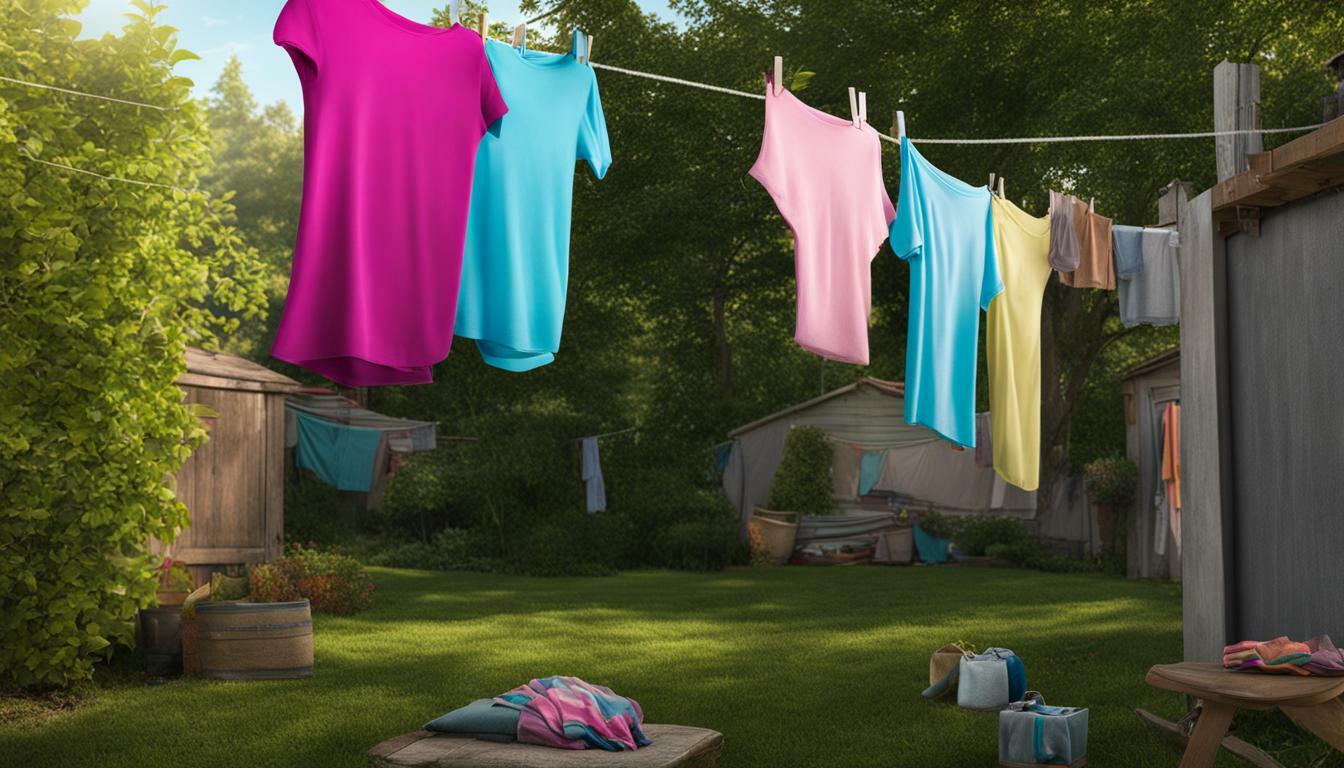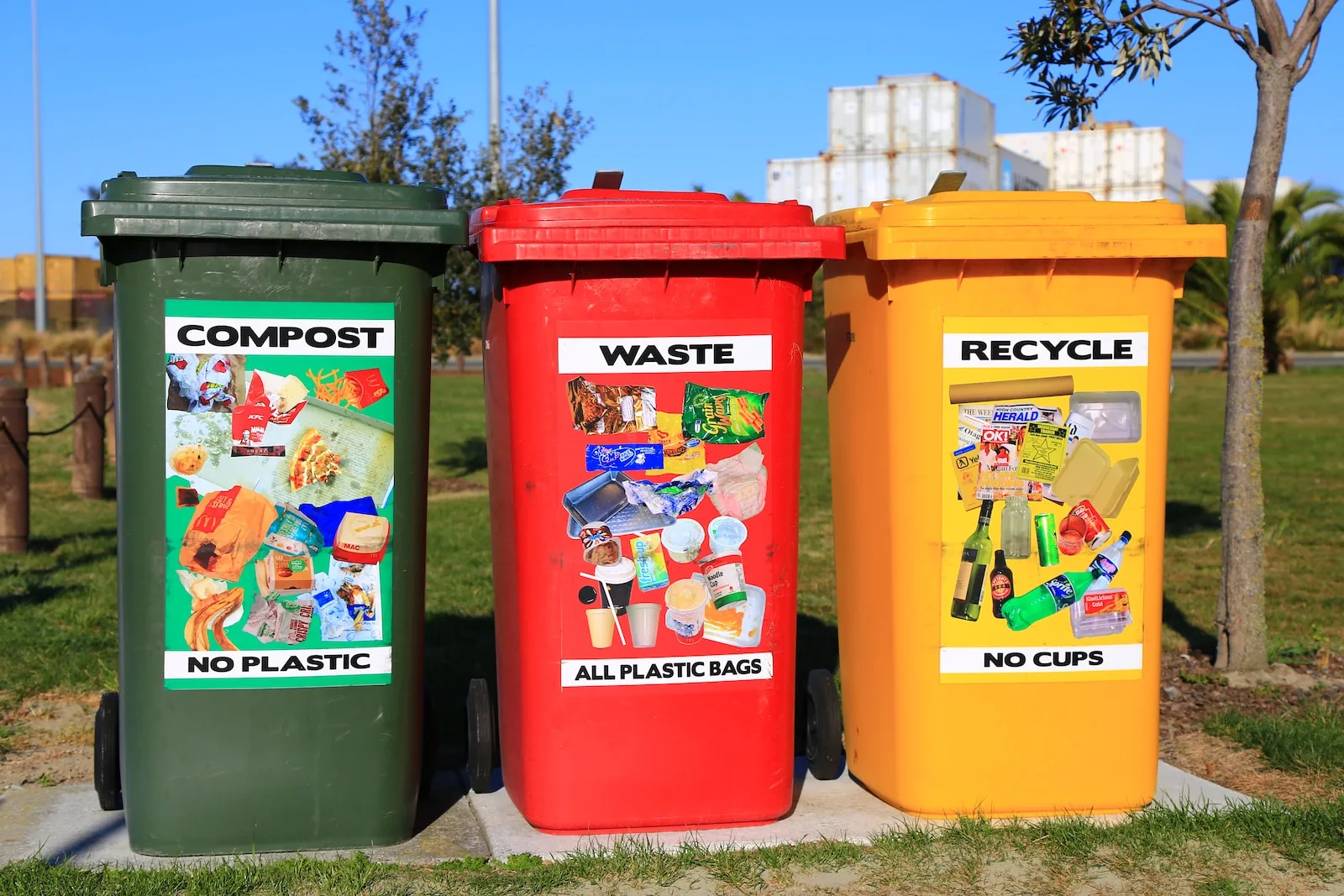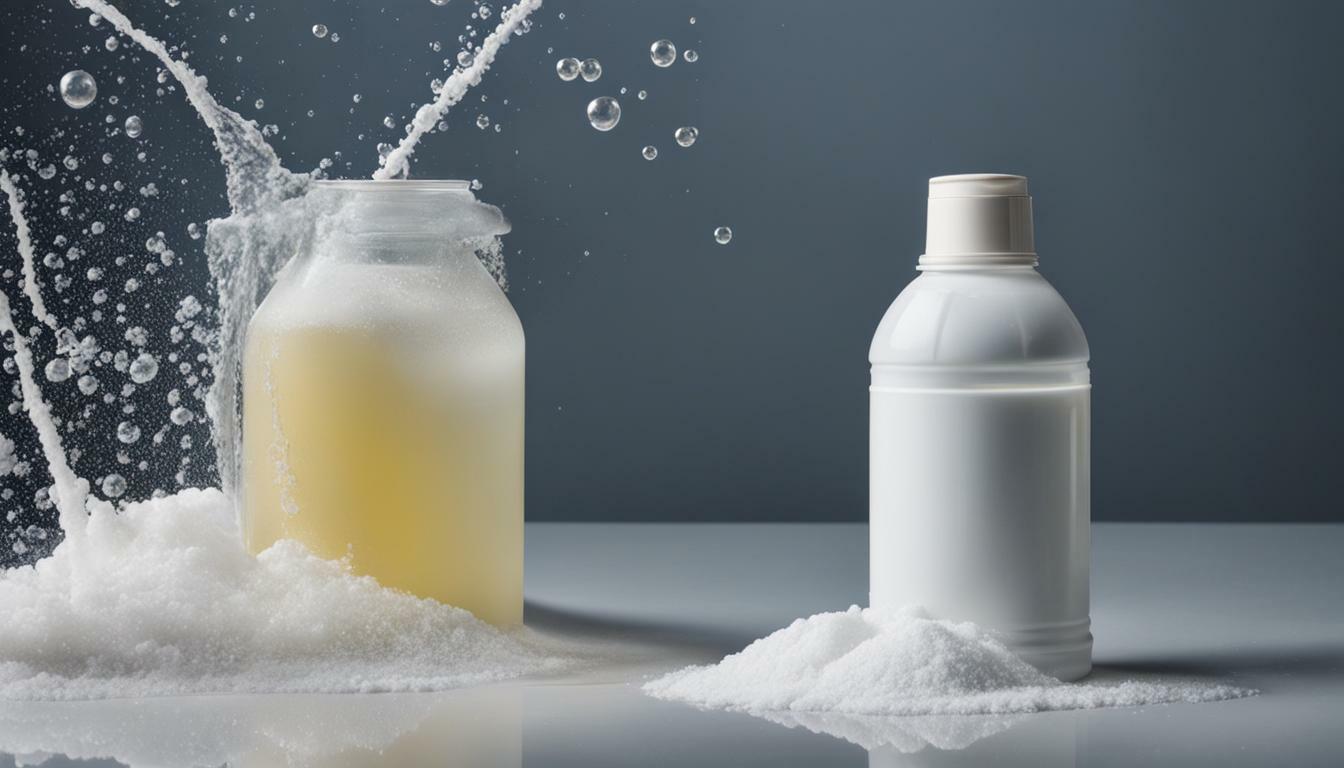When doing laundry, you may have come across the options of using fabric softener or dryer sheets. Both products are used to enhance the quality of your laundry, but they function differently. Understanding the difference between fabric softener and dryer sheets can help you make an informed decision about which one to use.
Fabric softener is a liquid additive that is applied during the wash cycle to soften clothes and reduce static. Dryer sheets, on the other hand, are sheet-like materials that are placed in the dryer to provide similar benefits. While both products achieve soft, static-free laundry, they have their unique advantages and disadvantages.
Key Takeaways:
- Fabric softener and dryer sheets are used to enhance the quality of laundry, but they function differently.
- Fabric softener is a liquid additive applied during the wash cycle to soften clothes and reduce static.
- Dryer sheets are sheet-like materials placed in the dryer to provide similar benefits.
- Understanding the difference between the two can help you make an informed decision about which one to use.
How Fabric Softener and Dryer Sheets Work
Fabric softener and dryer sheets are laundry products used to enhance your clothes. They work by reducing static electricity, softening fabrics, and adding fragrance to your laundry. However, they differ in the way they are applied and the specific benefits they offer.
Fabric softeners are liquid additives that are applied during the wash cycle. They work by depositing a thin layer of chemicals on the fabric, which makes the fibers feel softer and more flexible. They also reduce static electricity by neutralizing the electric charges that build up during the drying process. Some fabric softeners also contain fragrances that add a pleasant scent to your laundry.
Dryer sheets, on the other hand, are sheet-like materials that are placed in the dryer with your clothes. They work by coating the surface of the fabric with a thin layer of lubricant that reduces friction and static. Dryer sheets also contain fragrances that add a fresh scent to your laundry. However, they are not as effective in softening fabrics as fabric softeners.
While both fabric softeners and dryer sheets offer benefits to your laundry, it is important to choose the one that suits your needs and preferences. In the following sections, we will discuss the advantages and disadvantages of each product, as well as provide tips on how to use them effectively.
Benefits of Fabric Softener
Fabric softeners have a range of benefits for your laundry, including:
- Softer clothes: Fabric softeners make your clothes feel softer and more comfortable to wear. This is especially beneficial for rough or scratchy fabrics like towels or bedding.
- Reduced wrinkles: Fabric softeners help to reduce wrinkles in clothes, making them easier to iron. This can save you time and effort when doing laundry.
- Fragrance: Fabric softeners come in a range of scents, adding a pleasant fragrance to your laundry. This can help to mask any unpleasant odors or make your clothes smell fresh and clean.
Overall, fabric softeners can help to make your clothes feel and smell better, as well as making them easier to care for.
Benefits of Dryer Sheets
Dryer sheets are a popular alternative to liquid fabric softeners, offering many benefits for laundry care. Here are some of the advantages of using dryer sheets:
- Reduce static cling: As clothes tumble in the dryer, they often build up static electricity, causing them to cling together. Dryer sheets contain positively charged ingredients that neutralize the static and keep clothes separated for a more thorough drying cycle.
- Eliminate odors: Dryer sheets contain perfume-like fragrances that help mask unpleasant odors on clothes, such as cigarette smoke or pet smells. This can help clothes smell fresher and cleaner, even after they have been in storage for a while.
- Prevent clothes from tangling: In the dryer, clothes can sometimes tangle or stick together, creating wrinkles and reducing the effectiveness of the drying cycle. By adding a dryer sheet, clothes are less likely to tangle, leading to smoother, more evenly dried laundry.
- Convenient to use: Unlike liquid fabric softener, dryer sheets are easy to use and don’t require any measuring or dispensing. Simply toss a sheet in with the laundry, and you’re done!
Additional benefits of dryer sheets
“Dryer sheets can also be used for tasks like wiping down baseboards, repelling mosquitoes, and removing soap scum from showers.”
Overall, using dryer sheets can be a great way to keep clothes static-free, fresh-smelling, and easy to handle. However, keep in mind that some people may be sensitive to the fragrances in dryer sheets, and they may not be suitable for all types of fabric.
Choosing Between Fabric Softener and Dryer Sheets
When it comes to doing laundry, choosing between fabric softener and dryer sheets can be confusing. Both products have their benefits, but the decision ultimately depends on personal preference and laundry needs.
Fabric softener or dryer sheets? The answer depends on the type of fabric you’re washing, your machine’s capabilities, and your own preferences. Here are a few tips to help you make the right choice:
- If you’re washing towels or bedding, fabric softener may be the better choice as it can make them feel softer and more comfortable.
- If you live in an area with hard water, fabric softener may not work as well and dryer sheets may be a better option to reduce static cling.
- Dryer sheets may be more convenient to use since they don’t need to be added during the wash cycle and can simply be thrown into the dryer with your clothes.
- If you have sensitive skin, you may want to avoid fabric softeners that contain fragrances or other chemicals.
Ultimately, it’s up to you to choose the product that best suits your needs. Consider trying a few different options to find out what works best for you and your laundry routine.
Effectiveness of Fabric Softener and Dryer Sheets
When it comes to softening clothes and reducing static, both fabric softener and dryer sheets are effective. However, the results may vary depending on factors such as the fabric type and water hardness.
For instance, liquid fabric softener is typically more effective on heavier fabrics like towels and denim, while dryer sheets are better suited for lighter fabrics like cotton and polyester. Water hardness can also impact the effectiveness of both products, as harder water can make it more difficult for the ingredients to penetrate the fabric.
Ultimately, the choice between fabric softener and dryer sheets depends on personal preference. Some people prefer the convenience of dryer sheets, while others enjoy the fragrance and increased softness of fabric softener. It’s important to experiment with both products to determine which one works best for your laundry needs.
Environmental Considerations
When it comes to deciding between fabric softener or dryer sheets for laundry, it’s important to consider the environmental impact of both products. Many fabric softeners contain chemicals that can be harmful to the environment, such as phosphates and surfactants.
Additionally, dryer sheets are often single-use and contribute to unnecessary waste. However, there are eco-friendly alternatives available, such as wool dryer balls or reusable fabric softener sheets. These products are reusable and made from natural materials, making them a more sustainable choice for your laundry routine.
Tips for Using Fabric Softener and Dryer Sheets
Using fabric softener and dryer sheets can make a significant difference in the way your laundry feels and smells. Here are a few tips on how to use them effectively:
1. Know the Correct Amount to Use
Using too much fabric softener or dryer sheets can leave a residue on your clothes and diminish their absorbency. Always follow the manufacturer’s instructions for the correct amount to use based on the size of your load.
2. Add Them at the Right Time
Fabric softener should be added during the rinse cycle, while dryer sheets are added during the drying cycle. Be sure to add them at the right time to ensure their effectiveness.
3. Store Them Properly
Store fabric softener and dryer sheets in a cool, dry place to prevent them from sticking together or losing their effectiveness. Avoid storing them in areas with high humidity or extreme temperatures.
4. Use Different Scents for Different Fabrics
Consider using different scents of fabric softener or dryer sheets for different types of fabrics. For example, a floral scent may work well for sheets and towels, while a sporty scent may be better for gym clothes.
5. Experiment with Different Brands
Every brand of fabric softener and dryer sheets works differently. Experiment with different brands to find the one that works best for you and your laundry needs.
By following these tips, you can get the most out of your fabric softener and dryer sheets and achieve the softest, freshest laundry possible.
Conclusion
Understanding the difference between fabric softener and dryer sheets is important if you want to achieve the best laundry results. While both products are effective in softening clothes and reducing static, they offer unique benefits and drawbacks.
When choosing between fabric softener and dryer sheets, consider factors such as personal preference, fabric type, and laundry equipment. If you prefer a more natural option, consider eco-friendly alternatives to traditional fabric softeners and dryer sheets.
Fabric Softener and Dryer Sheets Difference
Ultimately, the difference between fabric softener and dryer sheets comes down to your laundry needs. Fabric softeners are liquid additives that are added during the wash cycle to improve the feel and reduce static. In contrast, dryer sheets are sheet-like materials that are placed in the dryer to provide similar benefits.
Regardless of which product you choose, be sure to use them correctly by following the instructions on the packaging. With the right approach, using fabric softener or dryer sheets can help you achieve soft, static-free laundry every time.
FAQ
Q: What is the difference between fabric softener and dryer sheets?
A: Fabric softener is a liquid additive applied during the wash cycle to soften clothes and reduce static. Dryer sheets are sheet-like materials placed in the dryer to provide similar benefits.
Q: What are the benefits of using fabric softener?
A: Fabric softeners can make clothes feel softer, reduce wrinkles, make them easier to iron, and add fragrance to the laundry.
Q: What are the benefits of using dryer sheets?
A: Dryer sheets can reduce static cling, eliminate odors, prevent clothes from tangling or sticking together, and are more convenient to use than liquid fabric softeners.
Q: How do I choose between fabric softener and dryer sheets?
A: Factors such as personal preference, fabric types, and laundry equipment should be considered when choosing between fabric softener and dryer sheets. It is also important to use them at the appropriate times during the laundry process.
Q: Are fabric softener and dryer sheets equally effective?
A: Both fabric softener and dryer sheets are effective in achieving soft, static-free laundry, but the results may vary depending on factors such as fabric type, water hardness, and personal preference.
Q: What are the environmental considerations of using fabric softener and dryer sheets?
A: Some fabric softeners contain chemicals that may be harmful to the environment, and dryer sheets contribute to waste as they are often single-use. There are alternative eco-friendly options available.
Q: Do you have any tips for using fabric softener and dryer sheets?
A: Use the correct amount of fabric softener or dryer sheets, add them to the laundry process at the right time, and store them properly for optimal results.



